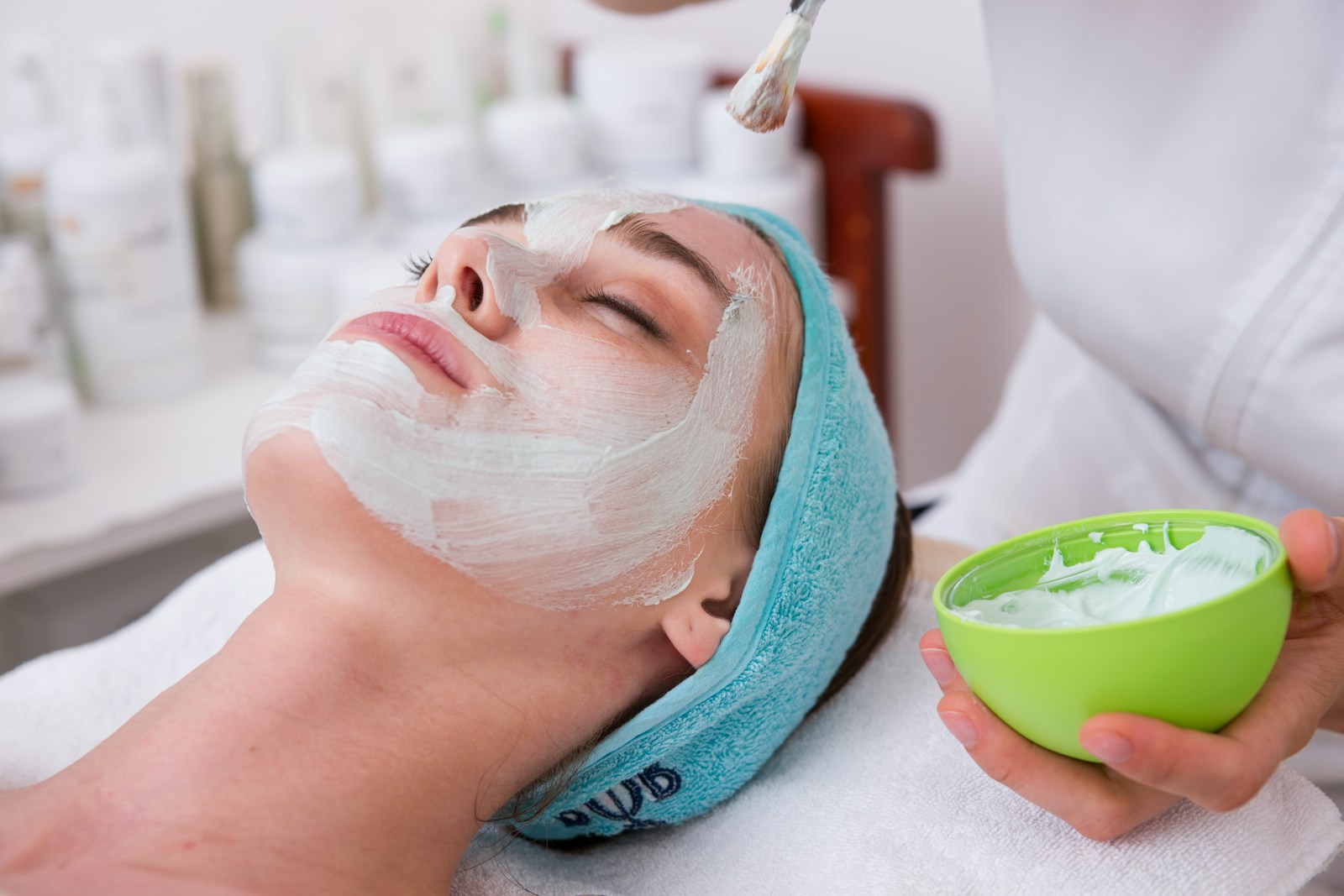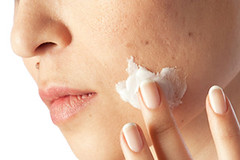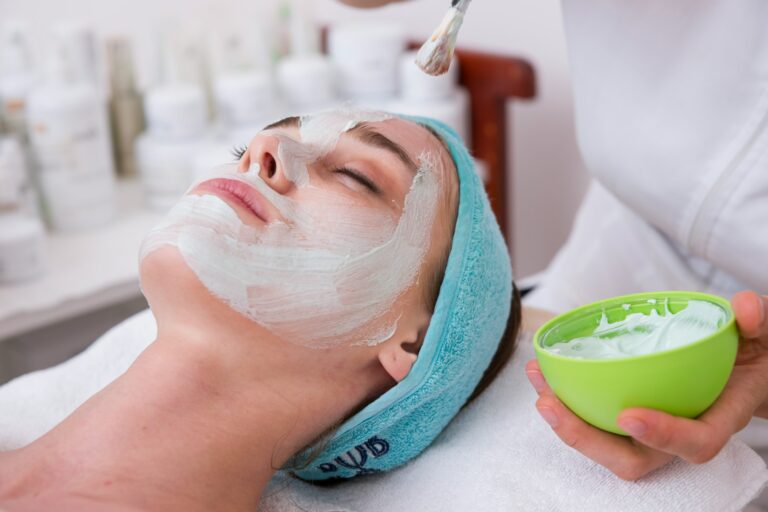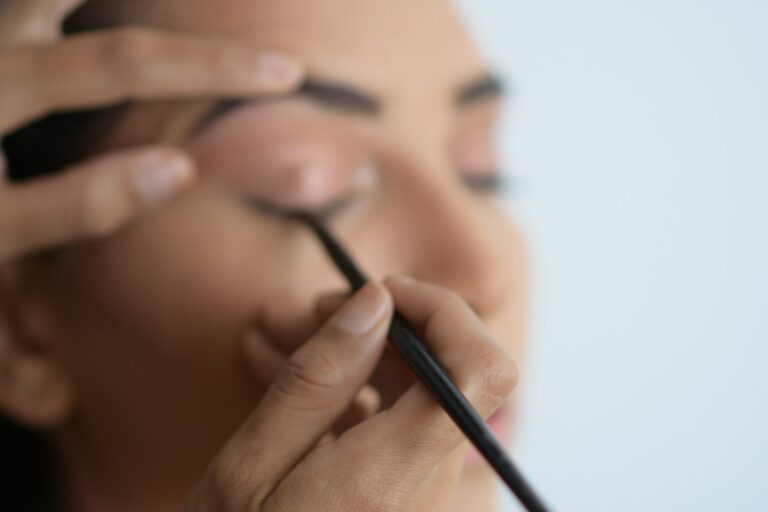It’s crucial to understand that hyaluronic acid is a powerful humectant that naturally occurs in your body, helping to retain moisture and keep your skin hydrated. This remarkable compound can hold up to 1,000 times its weight in water, making it particularly beneficial for dry skin. By incorporating hyaluronic acid into your skincare routine, you can enhance your skin’s ability to attract and retain moisture, promoting a plumper, more youthful appearance. Discover how this ingredient can transform your skin and help combat dryness effectively.
The Science of Hydration: How Hyaluronic Acid Functions
Molecular Structure and Properties
The unique molecular structure of hyaluronic acid (HA) is what makes it exceptionally effective in retaining moisture. Composed of long chains of sugar molecules known as glycosaminoglycans, HA has the ability to bind with water molecules, holding up to 1,000 times its weight in moisture. This remarkable capacity allows it to act like a sponge, pulling water into the skin and keeping it hydrated over extended periods. The viscoelastic qualities of hyaluronic acid also contribute to its effectiveness; it provides both cushioning and elasticity, which helps maintain skin plumpness and firmness.
When applied topically, HA can penetrate the upper layers of the skin, interacting with both the epidermis and dermis. The molecular size varies, allowing some forms to penetrate deeper than others, enhancing hydration at multiple skin layers. Its ability to form a protective barrier on the skin surface prevents moisture loss, effectively minimizing transepidermal water loss (TEWL). This makes HA an indispensable ingredient in many moisturizing products, especially for those who struggle with dry skin.
The Role of Hyaluronic Acid in Skin Hydration
Hyaluronic acid plays a pivotal role in maintaining optimal skin hydration levels. By drawing water from the environment and deeper skin layers, it creates a moisture reservoir that ensures your skin stays hydrated throughout the day. This is especially beneficial in dry climates or during harsh weather conditions, where skin tends to lose moisture rapidly. The ability of HA to facilitate cellular turnover also means that as it hydrates, it promotes a healthy skin barrier, which is vital for keeping irritants at bay and preventing further moisture loss.
Incorporating products containing hyaluronic acid into your skincare routine can lead to visibly plumper, more youthful skin. Regular use not only combats dryness but also reduces the appearance of fine lines and wrinkles. As your skin becomes better hydrated, you will notice a more radiant complexion as well. Whether you’re choosing a serum, cream, or eye product infused with HA, the overall improvement in skin texture and elasticity is evident, making it a fundamental addition for anyone aiming to achieve hydrated and healthy skin.
Why Dry Skin Is a Growing Concern
As the seasons change and urban living continues to rise, dry skin is becoming increasingly prevalent among people of all ages. Reports indicate that over 30% of adults experience some form of dry skin, a condition that can lead to discomfort, irritation, and even more severe skin issues if left untreated. In today’s fast-paced world, many individuals spend significant amounts of time indoors in environments where central heating and air conditioning strip moisture from the air, exacerbating the problem. Additionally, the prevalence of harsh skincare products and a lack of proper hydration habits contribute further to the challenges faced by your skin.
Many individuals tend to attribute dry skin to just seasonal changes or aging, but the reality is that it can be a symptom of deeper underlying issues. From autoimmune disorders to allergies, recognizing the root cause of your dry skin is vital in determining the best treatment. Addressing dry skin isn’t simply about slapping on a moisturizer; it often requires a multi-faceted approach, including lifestyle and dietary changes to truly achieve hydration from within.
Common Causes and Symptoms
Diverse factors contribute to the onset of dry skin, from climatic conditions to personal habits. Low humidity levels, especially during winter months, lead to a drop in moisture retention in your skin. Frequent handwashing, using harsh soaps, and certain medications can also strip the skin of its natural oils. Symptoms often manifest as tightness, flakiness, or itchy patches, which signal that your skin may not be retaining enough moisture. If you notice cracks or redness, this could indicate a more severe form of dry skin that may require intervention.
It’s necessary to pay attention to your body’s signals. Besides the visible symptoms, dry skin can lead to feelings of discomfort, which can impact your day-to-day activities. You may find yourself scratching or constantly aware that your skin feels less than hydrated, which can be distracting and distressing. Being proactive in addressing symptoms early on can help prevent further complications.
The Impact of Environmental Factors on Skin Moisture
Environmental influences play a significant role in your skin’s ability to maintain moisture. Pollution, for instance, can expose your skin to harmful toxins and free radicals that degrade its barrier function, leading to increased water loss. Additionally, exposure to UV rays can further diminish skin moisture levels, making you more susceptible to dryness. Indoor environments, particularly during the winter, often lack sufficient humidity, allowing skin to dry out faster than it could around the spring or summer months. All these factors combined create a perfect storm for dry skin woes.
The impact of these environmental conditions is not just superficial; they can affect your skin’s health in the long term. Over time, repeated exposure to low-humidity settings or pollutants can weaken your skin’s barrier, making it less capable of holding onto water. This kind of chronic dryness can accelerate the aging process, leading to the development of fine lines and wrinkles before their time. Noticing these influences and adjusting your environment—be it through humidifiers or skincare products designed to combat these factors—can assist in maintaining that necessary moisture balance.
- Environmental factors
- Exposure to pollution
- Low humidity
- UV rays
Recognizing how these environmental elements affect your skin’s hydration levels enables you to take proactive steps. Simple solutions such as using a humidifier at home or applying protective skincare can make a significant difference. Staying informed about these challenges helps you maintain a healthy and glowing complexion even in less-than-ideal surroundings.
- Skin barrier function
- Chronic dryness
- Ageing process
- Moisture retention
Recognizing the signs and understanding how external factors influence skin hydration is necessary for long-term skin health. By adapting your skincare routine to counter these conditions, you can effectively combat the effects of dry skin and maintain your skin’s natural suppleness.
The Benefits of Hyaluronic Acid for Skin Care
Immediate Effects on Skin Texture and Appearance
Your skin can experience almost instant results when using hyaluronic acid. As a powerful humectant, it draws moisture into the skin, providing immediate hydration that plumps and smooths the skin’s surface. The moment you apply products containing HA, *you may notice a softer, more supple texture*, as it fills in fine lines and wrinkles, creating a more youthful appearance. This revitalizing effect often leads to a noticeable glow, making your skin look healthier and more vibrant right after application.
Furthermore, hyaluronic acid also aids in balancing your skin tone. Within days, many users report a reduction in redness and an overall improvement in their complexion. By helping to retain moisture, HA can minimize the appearance of dry patches and enhance your skin’s natural barrier, which plays an crucial role in maintaining your skin’s overall hydration and defense against environmental aggressors. This immediate effect makes hyaluronic acid a staple in the routine of many who battle dryness and uneven texture.
Long-Term Advantages for Skin Health
In addition to the notable immediate effects, the long-term benefits of incorporating hyaluronic acid into your skincare routine are equally impressive. Over time, consistent use of HA contributes to increased elasticity and firmness in your skin, helping to combat the visible signs of aging. Studies have shown that regular application can lead to a *significant reduction in wrinkle depth and frequency*, promoting a smoother and more youthful complexion.
Beyond just aesthetics, hyaluronic acid also supports your skin’s overall health by improving its barrier function. This means your skin can better fend off external aggressors while simultaneously retaining moisture more effectively in the long run. Research indicates that skin treated with HA over extended periods exhibits a marked increase in hydration levels and a notable decrease in transepidermal water loss, enabling your skin to remain resilient and nourished.
As your skin adapts to a routine that includes hyaluronic acid, you might also notice improvements in texture and tone that lead to a more balanced and even complexion. With its ability to stimulate collagen production and promote cellular turnover, HA not only hydrates but also contributes to a more youthful-looking skin over time. Given that the production of natural hyaluronic acid declines with age, reintroducing it through topical products can significantly counteract this loss, enhancing not just appearance but also your skin’s health and vitality.
Selecting the Right Hyaluronic Acid Products
Finding the right hyaluronic acid products can significantly enhance your skincare routine, especially if you’re dealing with dry skin. Start by evaluating the formulation; look for products that combine hyaluronic acid with other beneficial ingredients. High-quality products often include vitamin C for brightening, niacinamide for calming inflammation, or ceramides to help fortify the skin barrier. Always check the concentration of hyaluronic acid to ensure you’re getting enough. Formulations with lower molecular weight hyaluronic acid can penetrate deeper into your skin, offering lasting hydration and lasting effects.
Key Ingredients to Look for in Formulations
Consider what other ingredients complement hyaluronic acid. Glycerin, for example, is humectant like hyaluronic acid and enhances moisture retention. Adding aloe vera into the mix can deliver soothing properties that enhance hydration without feeling heavy. Additionally, peptides can improve elasticity and fight signs of aging, making them an excellent choice in conjunction with hyaluronic acid. Don’t ignore the potential of antioxidants, such as green tea extract, which can protect your skin from environmental stressors while working synergistically with hydration-boosting ingredients.
Application Techniques for Maximum Efficacy
For hyaluronic acid to truly work its magic, your application techniques matter just as much as the product itself. Start with a clean, slightly damp face; applying hyaluronic acid on wet skin can help lock in moisture more effectively. Use a few drops of the serum, gently pressing it into your skin using your fingertips to promote absorption. Following up with a moisturizer seals in all that hydration, preventing it from escaping. It’s best to stick with those readily available formulas while you fine-tune your personal routine.
If your skin tends to feel excessively dry, consider layering products that contain hyaluronic acid or starting with a toner infused with the ingredient. Your skin can absorb multiple layers of hydration, and each application can build a protective barrier. This process optimizes the effects of hyaluronic acid, providing lengthy hydration that keeps your skin plump and radiant throughout the day.
Personal Stories: Transformative Experiences with Hyaluronic Acid
Testimonials from Users
Users often share their remarkable journeys with hyaluronic acid, revealing how this powerful ingredient has brought life back to their skin. One user recounted her struggle with severely dry skin that resulted in painful cracks and irritation during winter months. After incorporating a hyaluronic acid serum into her daily routine, she noticed a significant change. Within a week, her skin felt plumper and more hydrated, and the pesky dry patches disappeared. The newfound confidence allowed her to ditch heavy foundations, embracing her natural glow instead.
Another testimonial highlights the experience of a young man in his 20s who battled dry skin due to harsh environmental conditions. Frustrated by the constant need to reapply moisturizer, he sought a solution that was more effective. After trying a hyaluronic acid-based moisturizer, he was thrilled with the results. His skin not only retained moisture throughout the day but also started to look visibly healthier and less flaky. These stories reflect a common theme: hyaluronic acid is seen as a game-changer in managing dry skin, making it a staple in many skincare routines.
Insights from Dermatologists
Dermatologists frequently commend the adaptability of hyaluronic acid in addressing various skin concerns, particularly dryness. According to Dr. Emily S. Hart, a board-certified dermatologist, hyaluronic acid acts as a humectant, drawing moisture from the environment into the skin. This means it can work effectively regardless of the climate, making it an imperative addition to anyone’s skincare arsenal. In clinical practice, many dermatologists recommend hyaluronic acid not just for its hydrating properties but also for its ability to improve skin texture and support overall skin health.
Studies show that hyaluronic acid can hold up to 1,000 times its weight in water, which highlights its remarkable ability to keep the skin hydrated. Dermatologists emphasize the importance of applying it on slightly damp skin to maximize absorption. This strategy not only enhances hydration levels but also supports a smoother, more youthful appearance over time. Many clinical trials indicate users can experience a noticeable difference within two to four weeks, underscoring hyaluronic acid’s efficacy in maintaining skin moisture and combating dryness. This insight reassures many that they can see tangible improvements with consistent use.
Conclusion
Summing up, hyaluronic acid is a potent ingredient that can significantly improve your skin’s hydration levels, particularly if you struggle with dryness. By attracting moisture from the environment and holding it in your skin, it helps you achieve a plump and youthful complexion. Incorporating products that contain hyaluronic acid into your skincare routine can provide lasting benefits, making your skin feel more comfortable and vibrant.
Understanding how hyaluronic acid works allows you to make informed choices about your skincare. You can find it in various forms, from serums to moisturizers, enabling you to tailor your approach based on your individual skin needs. By choosing to include hyaluronic acid in your skincare arsenal, you empower yourself to combat dry skin effectively and promote overall skin health.







